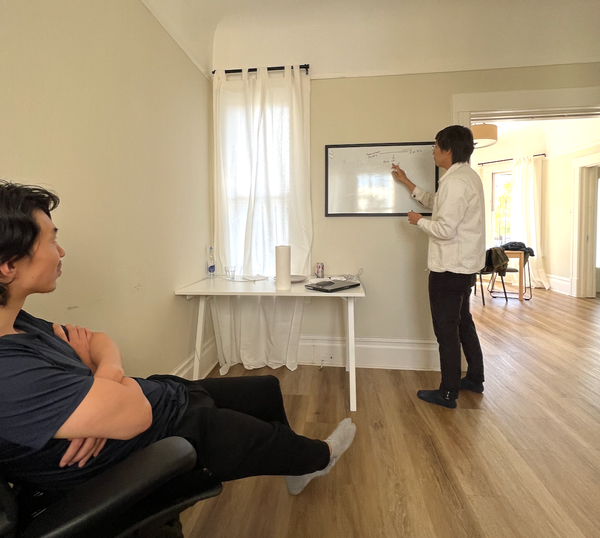They didn’t hire you to sit silently
Just don’t be a jerk about it.

If you work at startup and you haven’t wanted to scream at the top of your lungs that everyone is crazy except you, then you likely having been working at the right startups. Building a business is hard, and there is no rule book. You might the first person ever to do the job you have to do, think about that for a second, it’s paradox, exciting and terrifying.
The time will come when your boss, your leaders, your board, your product team, your engineering team, your growth team will do something that you deem just bad. You will want to call an all hands meeting, enlighten the rest of these mere mortals on your perspective and course correct this dangerous trajectory and maybe you should do just that, but, before you do, ask yourself these questions.
Who is driving?
Are you driving or is it your ego? How will you know? Imagine if someone else were to enlighten the tribe and get all the credit. How would that make you feel?
If you would feel worse, then your ego is driving.
If you would feel better, then you are driving.
If your ego is driving, be very careful what you say and who you say it to. You might be onto something, and you might have identified a true opportunity to make your company better, but chances are you haven’t. You are fixated on a local maximum that you can find because you have been there before. So you start driving and you are feeling pretty good but what you didn’t know is that your ego was hiding in the back seat of your car and put one of those chloraform things over your mouth when you got in and now you are snluked over in the passenger seat of the car and it’s now going 85 in a 40 (we are in Canada people) and your well-intentioned course correction turns into a high-speed chase away from the very goals you sought to achieve.
The key here isn’t to avoid taking the wheel; it's about knowing when to drive and when to navigate. The ecosystem of a startup is complex, with every team member playing a critical role in its journey towards success. Understanding this dynamic can be the difference between a collaborative effort and a solo crusade.
Before you rush to judgment or action, consider the following:
- Alignment: Are your concerns aligned with the company's core values and long-term vision? If not, it's worth reassessing the urgency and nature of your intervention.
- Impact: Evaluate the potential impact of your actions. Will this move the needle in the right direction, or could it possibly derail existing progress?
- Communication: How you communicate your concerns is as important as the concerns themselves. Aim for dialogue, not monologue. Encourage an environment where feedback is constructive and solutions are collaborative.
In moments of frustration, remember why you joined this startup in the first place. Was it to make a difference? To innovate? To be part of something groundbreaking? Hold onto that. Your passion is a testament to your belief in the company’s mission. Use it as a compass to guide your actions, not as a blinder to the contributions and perspectives of your colleagues.
Innovative solutions arise from diverse viewpoints. Embrace the chaos, the disagreements, and the challenges. They are not signs of failure but indicators of a team passionately striving for excellence. Your perspective is invaluable, but so are those of your peers. Together, you form a collective intelligence far greater than the sum of its parts.
Finally, remember that leadership is not about being right; it's about guiding your team towards the right outcomes. Sometimes, that means leading from the front. Other times, it means supporting from the back. Know when to push forward and when to step back. This balance is what sustains a startup's momentum, fueling its growth from a fledgling idea into a thriving enterprise.
Before you decide to take action, pause for a moment. Assess your motives and the bigger picture. Talk with your team. Success in a startup isn't linear—it's a series of lessons and growth opportunities. Embrace these moments. Sometimes leading, sometimes following, but always moving forward together.





